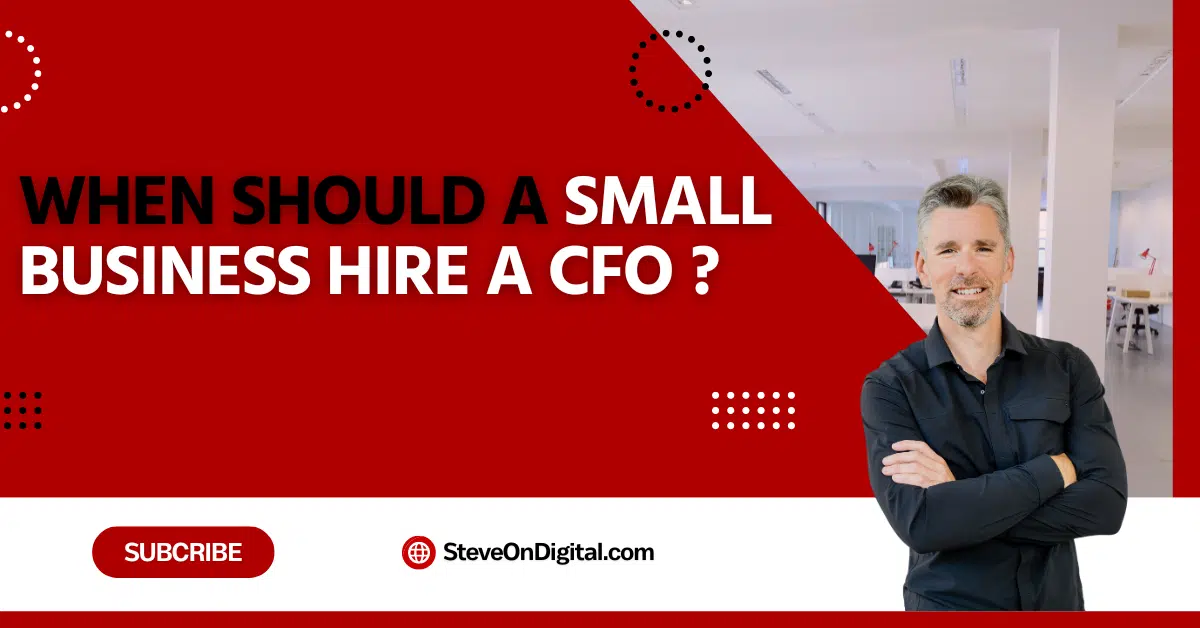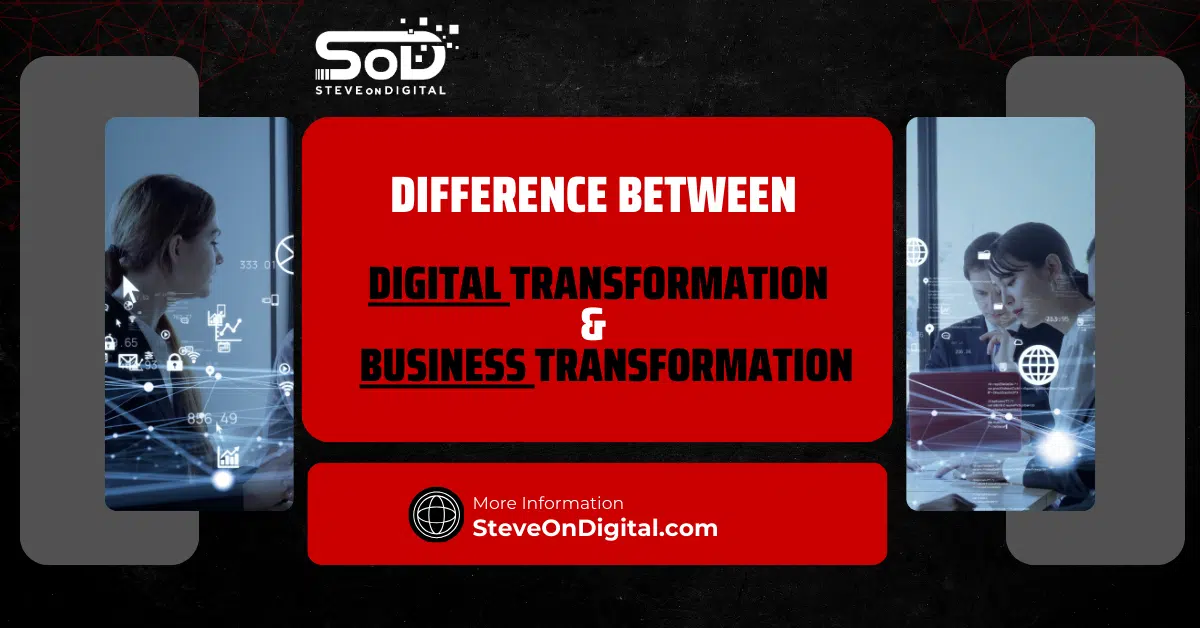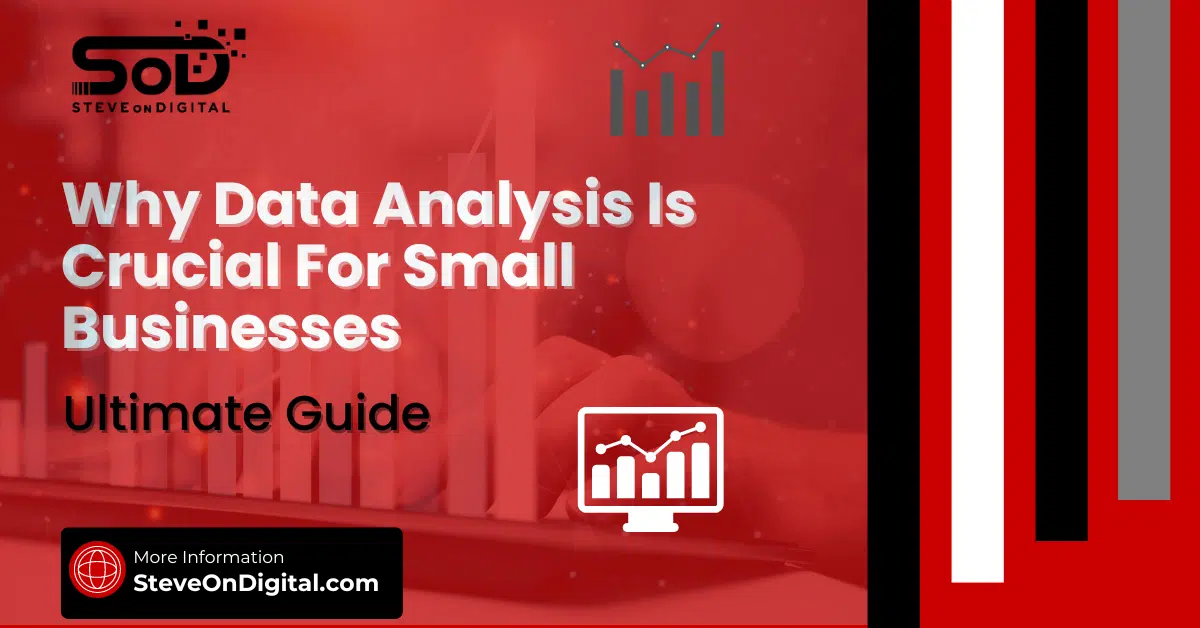A small business should consider hiring a Chief Financial Officer (CFO) when it reaches a point where financial complexities and strategic planning demand expertise beyond basic accounting.
This often coincides with rapid growth, expansion into new markets, increased regulatory requirements, or when preparing for significant financial events like fundraising, mergers, or acquisitions.
Essentially, if the business owner finds themselves spending too much time on financial management rather than focusing on core business strategies, or if the current financial team is overwhelmed, it’s time to hire a CFO.
The right CFO brings financial expertise, strategic insight, and leadership to navigate complex financial landscapes, ensuring the business not only survives but thrives in its competitive environment.
Understanding The Role Of A CFO
At the heart of financial leadership within a company lies the Chief Financial Officer (CFO).
The CFO’s role is pivotal in not only ensuring the accuracy of financial reports and compliance with regulatory requirements but also in steering the company toward its financial objectives through strategic financial planning and analysis.
Definition And Key Responsibilities
Definition Of CFO:
- A CFO is entrusted with overseeing the financial operations of a company.
Key Responsibilities:
- Financial planning
- Managing financial risks
- Record-keeping
- Financial reporting
- Providing invaluable insights into the financial health of the company
- Guiding strategic financial decisions
- Ensuring the efficient management of financial resources.
Difference Between CFO, COO With Financial Acumen, Controller, And Bookkeeper
The distinction between a CFO and other financial roles such as a COO with financial acumen, a Controller, or a Bookkeeper, lies in the scope and strategic nature of their responsibilities.
While a COO might possess financial knowledge, their focus is more on the operational aspects of the business.
A Controller oversees accounting and financial reporting, ensuring accuracy and compliance, whereas a Bookkeeper is responsible for recording financial transactions, maintaining financial records, and executing day-to-day financial tasks.
Unlike these roles, a CFO brings financial expertise and strategic oversight, guiding the company through complex financial landscapes, identifying growth opportunities, and mitigating financial risks.
They play a crucial role in strategic planning, investment decisions, and in shaping the company’s financial future.
CFO Responsibilities And Comparison With Other Financial Roles
| Role | Financial Planning | Risk Management | Strategic Decision-Making | Accounting & Reporting | Daily Financial Tasks |
| CFO | ✔️ | ✔️ | ✔️ | ✔️ | Occasionally |
| COO with Financial Acumen | Sometimes | Sometimes | Sometimes | No | No |
| Controller | ✔️ | ✔️ | No | ✔️ | No |
| Bookkeeper | No | No | No | ✔️ | ✔️ |
The Evolutionary Path Of SME Financial Needs
The Hierarchy Of Financial Needs: From Transacting To Strategic Partnering
Just as Maslow’s hierarchy of needs outlines the progression of human needs, SMEs experience an evolutionary path in their financial needs, from basic transaction processing to sophisticated strategic partnering.
Initially, small businesses focus on fundamental financial transactions and record-keeping (accounts payable, accounts receivable, and maintaining financial records).
As they grow, their financial needs become more complex, requiring advanced financial analysis, strategic financial decisions, and comprehensive financial planning to ensure sustainable growth and financial health.
Identifying Where Your Business Stands On The Financial Hierarchy
For small business owners, understanding where your business currently stands on this hierarchy is crucial.
It involves assessing your current financial management practices, the complexity of your financial data, and your strategic planning capabilities.
This evaluation helps in determining the right time to hire a CFO or enhance your finance team’s capabilities to address more sophisticated financial needs.
The Illusion Of Fintech As A Complete Solution
In today’s digital age, fintech solutions offer small businesses a range of tools for managing their financial operations.
However, while these technologies can streamline processes and improve efficiency, they cannot replace the strategic insight and expertise a CFO brings to a business.
Fintech can support day-to-day operations and financial reporting, but strategic financial decisions, risk assessment, and long-term financial planning require the human insight, experience, and expertise of a financial leader.
When To Consider Hiring A CFO For Your Small Business
Navigating the financial complexities of a small business can be a daunting task. As your business evolves, so do its financial needs, requiring more sophisticated management and strategic planning.

Recognizing the signs that your small business is ready for a Chief Financial Officer (CFO) can be the catalyst for sustainable growth and financial stability.
Signs And Triggers For SMEs
- Rapid Growth And Scaling Challenges: When a small business experiences rapid growth, the complexity of financial management increases exponentially. This growth often brings about scaling challenges that require strategic financial planning and analysis. A CFO can provide the expertise needed to manage this growth effectively, ensuring that the business’s financial health remains robust.
- Complex Financial Decisions And Economic Uncertainty: In times of economic uncertainty, making strategic financial decisions becomes crucial. A CFO’s expertise in financial planning, risk assessment, and strategic decision-making can guide a small business through uncertain economic landscapes, identifying opportunities for growth and mitigating financial risks.
- Internal Growth, Partnerships, Subsidiaries, And Acquisitions: As a business expands, it may form partnerships, create subsidiaries, or even pursue acquisitions. These strategic moves necessitate complex financial analysis and planning, areas where a CFO’s experience and expertise are invaluable.
- Fundraising, Capital Needs, And Investment Strategies: Securing funding and managing capital needs are critical for a small business’s growth. A CFO can lead fundraising efforts, manage relationships with investors and venture capitalists, and develop investment strategies that align with the business’s long-term goals.
- The Debate Between Early vs. Timely vs. Too Late Hiring: Deciding when to hire a CFO can be challenging. Hiring too early may strain a small business’s financial resources, while hiring too late may result in missed opportunities for growth and financial optimization. The key is to recognize when the complexity of your financial management exceeds the capabilities of your current team.
Signs Your SME Needs A CFO
| Sign/Trigger | Description |
| Rapid Growth and Scaling Challenges | Financial complexities increase, necessitating strategic planning and analysis. |
| Complex Financial Decisions and Economic Uncertainty | Strategic financial planning becomes crucial to navigate uncertainties. |
| Internal Growth, Partnerships, Subsidiaries, and Acquisitions | Expansion requires sophisticated financial analysis and planning. |
| Fundraising, Capital Needs, and Investment Strategies | Expertise needed in managing capital and developing investment strategies. |
| Early vs. Timely vs. Too Late Hiring | Recognize when financial management complexity exceeds current capabilities. |
Alternatives To A Traditional CFO
For small businesses not yet ready to hire a full-time CFO, there are alternatives:
- Part-Time Accountant or Bookkeeper: For basic financial management and reporting.
- Temp or Advisor CFO: Offers strategic financial advice on a temporary or consultative basis.
- Controller/Head Of Finance: Manages accounting and financial reporting, a step towards more strategic financial management.
- Finance Firm Partnerships: Outsourcing financial management to specialized firms.
- Fractional CFOs: Provides CFO-level expertise on a part-time or project basis, offering a flexible and cost-effective solution for small businesses.
CFO Hiring Options For Small Businesses
| Option | Scope of Work | Benefits | Best Suited For |
| Part-Time Accountant/Bookkeeper | Basic financial management and reporting. | Cost-effective, covers fundamental needs. | Early-stage businesses with straightforward financial needs. |
| Temp or Advisor CFO | Strategic financial advice on a temporary basis. | Strategic insight without long-term commitment. | Businesses facing specific strategic challenges or transitions. |
| Controller/Head Of Finance | Manages accounting and financial reporting. | Step towards strategic financial management. | Growing businesses needing more than basic financial oversight. |
| Finance Firm Partnerships | Outsourced financial management. | Access to comprehensive financial services. | Businesses looking for expertise without hiring in-house. |
| Fractional CFO | CFO-level expertise on a part-time basis. | Flexible, cost-effective strategic management. | SMEs needing strategic financial insight but not ready for a full-time CFO. |
Determining The Right Time For Your SME
- Analyzing Financial Reports: A Necessity or A Strategic Tool?: If your financial reports are used solely for compliance rather than as tools for strategic decision-making, it may be time to consider hiring a CFO.
- Managing Startup Cash Flow: Effective cash flow management is critical for the survival and growth of a startup. A CFO can provide the expertise needed to optimize cash flow and ensure financial stability.

- Setting Practical Goals And The Role Of A CFO In Achieving Them: A CFO can help set realistic financial goals and develop strategies to achieve them, aligning financial planning with the business’s overall objectives.
- The Importance Of Not Hiring “Too Early” or “Too Late”: Hiring a CFO at the right time is crucial. The decision should be based on the current and projected complexity of your financial management needs, ensuring that the addition of a CFO adds value and drives growth.
What To Look For In A CFO
As the financial backbone of a small to medium-sized enterprise (SME), the role of a Chief Financial Officer (CFO) goes beyond just crunching numbers.
It’s about steering the company towards financial success and stability.
From my journey as a business owner and entrepreneur, I’ve gleaned insights into what makes a CFO invaluable and how to ensure you’re making the right addition to your team.
Essential Capabilities And Expertise For An SME CFO
A CFO’s value lies in their depth of financial expertise and strategic thinking. Here are some critical areas to focus on:
- Strategic Financial Decisions: Look for someone who can navigate through complex financial landscapes and make decisions that align with your company’s long-term goals.
- Financial Management And Planning: A strong CFO should excel in managing the company’s finances, including financial planning, risk management, and forecasting.
- Understanding Of Financial Reports And Data: They must be adept at interpreting financial statements, balance sheets, and income statements to provide actionable insights.
- Experience With Capital Expenditures And Investments: The right CFO has a proven track record of managing investments, capital raising, and expenditure strategies effectively.
Questions To Ask When Building A Finance Function
When Interviewing Candidates, Consider Asking:
- How have you contributed to your previous company’s financial growth?
- Can you give an example of a strategic financial decision you made and its impact?
- How do you approach risk assessment and management?
- Describe your experience with fundraising and managing relationships with investors or venture capitalists.
The Balance Between CPA Qualifications And Practical Experience
While CPA qualifications are a testament to a candidate’s financial knowledge, practical experience should not be undervalued.
A CFO with hands-on experience in growing businesses, especially within your industry, can be more beneficial than a highly certified individual who lacks real-world application.
Strategic Partnering And Beyond
How A CFO Serves As A Strategic Partner
A CFO’s role transcends traditional financial duties, positioning them as a strategic partner to the CEO and the broader business.
They are instrumental in:
- Strategic Planning: Working alongside the CEO to craft strategies that drive growth, manage risk, and exploit new opportunities.
- Financial Growth: Identifying and executing initiatives that lead to financial growth, such as entering new markets or optimizing the company’s financial structure.
- Operational Efficiency: Improving the efficiency of day-to-day operations and financial processes to support business scalability.

Looking Beyond The Numbers: The CFO’s Role In Company Culture, Vision, And Long-Term Planning
The influence of a CFO extends into shaping the company’s culture and vision. They play a crucial role in:
- Cultivating A Financially Aware Culture: Educating and instilling a sense of financial accountability across all departments.
- Vision Alignment: Ensuring that the financial strategy aligns with the company’s long-term vision and values.
- Sustainability And Ethical Growth: Championing sustainable growth practices and ethical financial management to build a business that thrives in the long term.
In my experience, a CFO who embodies both financial acumen and a strategic mindset has been instrumental in navigating the complexities of the business landscape.
Their ability to look beyond numbers and contribute to the company’s culture and vision has been invaluable in achieving sustainable growth and success.
Choosing the right CFO involves a careful evaluation of their expertise, experience, and the unique value they bring to your business.
It’s about finding that strategic partner who aligns with your vision and is committed to driving your company toward a prosperous future.
FAQs
What exactly Does A CFO Do For A Small Business?
A CFO oversees the financial operations, including financial planning, management of financial risks, record-keeping, and financial reporting. Beyond these core duties, a CFO provides strategic analysis and guidance on financial growth, ensuring the financial health of the business through informed strategic financial decisions.
To Whom Does The CFO Report In A Small Business?
Generally speaking, the CFO reports directly to the business owner or CEO. This reporting structure facilitates strategic alignment between the company’s financial strategies and its overarching goals, ensuring that financial planning and operations are closely integrated with the business’s vision and objectives.
What Qualifications Should A Small Business Look For In A CFO?
Essential qualifications include a strong understanding of financial management principles, deep experience in financial planning and analysis, and a proven track record of strategic decision-making. While CPA qualifications are valuable, practical experience and the ability to drive growth and manage financial risks are equally critical.
Conclusion: The Importance Of A CFO
In conclusion, hiring a CFO is a decision that can significantly influence the trajectory of your small business.
A CFO’s expertise in financial management and strategic planning is invaluable, particularly as your business navigates periods of rapid growth, complex financial landscapes, and the challenges of scaling operations.
From my perspective, the decision to hire a CFO should not be taken lightly.
It requires a thorough evaluation of your business’s current financial management capabilities, future growth prospects, and the strategic direction you envision.
A CFO can be a game-changer, offering insights that go beyond the numbers to include contributions to company culture, vision, and long-term planning.
I encourage small business owners to consider their financial leadership needs as an integral part of their broader business strategy.
The right time to hire a CFO varies from one business to another, but the underlying principle remains the same: the sooner you align your financial strategies with your business goals, the better positioned you will be to achieve sustainable success and growth.
The journey towards financial excellence is ongoing, and bringing a CFO on board is a pivotal step in that journey.
Whether you opt for a full-time CFO, a fractional CFO, or another alternative, the goal is to ensure that your financial management practices are robust, strategic, and aligned with your vision for the future.
Remember, the value of a CFO extends beyond mere numbers.
It lies in their ability to serve as a strategic partner, guiding your business toward financial stability and growth.
As you contemplate this critical decision, consider not only the immediate financial needs of your business but also its long-term aspirations and the role a skilled CFO can play in realizing them.




